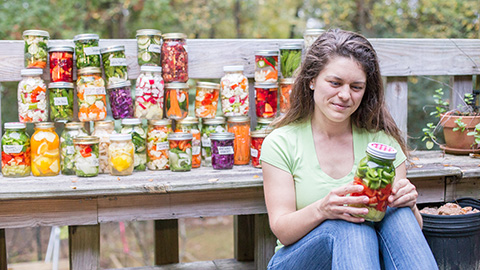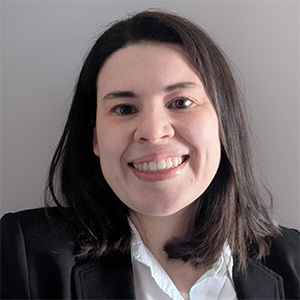How I got a job away from the bench when all I had were biochem degrees
I spent 20 years of my life in school. I got a bachelor’s degree in biochemistry and then went to graduate school for biochemistry. My educational saga culminated with me stumbling out of a brutal almost-Ph.D. experience, narrowly escaping with a master’s degree. I then took a job in an academic department setting up teaching labs and quickly realized that this was not something I could build a career on.
I knew the type of position I was looking for — something in a creative field — and I had the required skills in the listing for every job I applied for, but no matter how many resumes and cover letters I sent, my phone stayed silent. I started to wonder if I was doing something wrong.
When I decided to apply for jobs outside biochemistry, I knew I faced an uphill battle. Clearly, I would have to rely on experience gained outside of the classroom and lab to make up for the difference.
I was in for some surprises along the way, though. I thought that having an advanced degree in science would be additive or at least couldn’t hurt. But when I started applying for jobs away from the bench, I began to think that not only was it not necessarily a positive, it was possibly a flat-out negative to have that master’s degree on my resume when I wasn’t applying for a science job.
My friend Mallory, a lawyer by training, went through the same thing when she was searching for jobs outside her field. It’s not that your degree makes you unqualified, she told me, but the hiring committee is confused about why you’d earn a graduate degree to then turn around and not use it. Especially when the public perception is that the field you’re leaving is high-paying (whether that’s true or not). So even though I had a master’s degree, I needed to work extra hard to prove my worth. It was like starting from scratch or not having a degree at all.
To make up for the fact that I didn’t have the right degree, I had to make sure I could demonstrate that I had the skills to do the job. I scoured postings for jobs that looked interesting and made a list of tangible skills I would need to get an interview. In my case, a lot of jobs required knowledge of website and photo-editing programs.
After those 20 years in the classroom, I really didn’t want to go back to school, so I found a free online training program to learn some coding. I practiced using illustration and photo-editing programs in my spare time. I created an Instagram account to post my work, which helped me become more comfortable sharing what I had created. I began to take side gigs designing print materials and website wireframes for friends — things that I thought would land me a job when I added them to my resume.
Incorrect. I now had all sorts of overlapping dates — including freelance work (something that’s harder to verify with references) — on my resume. I had to find a way to package my new hard-earned skills into something more legitimate looking.
Lucky for me, the biology department where I was setting up teaching labs desperately needed a website editor — and lucky for them, I was desperate to help them out. I redesigned the website, redesigned the lab manuals and started several social media channels. I then went back to my resume, removed the bits about freelancing, and swapped in the parts about my department’s website, lab manual and social media.
Finally, I decided to leverage my degree for what it was. I began typing “biochemistry marketing” into the Indeed.com search bar and found the niche I wanted to pursue. The whole process of building up my resume and skills took about a year, but once I found where I could shine, I landed job interviews at the first three places I applied.
Enjoy reading ASBMB Today?
Become a member to receive the print edition four times a year and the digital edition monthly.
Learn moreFeatured jobs
from the ASBMB career center
Get the latest from ASBMB Today
Enter your email address, and we’ll send you a weekly email with recent articles, interviews and more.
Latest in Careers
Careers highlights or most popular articles

Cooking up science engagement, a fermentation experiment
By blending hands-on cooking with scientific experimentation, a study from a team at North Carolina State University demonstrates how culinary creation can spark scientific discovery and deepen public engagement with researchers.

Upcoming opportunities
ASBMB's PROLAB award helps graduate students and postdoctoral fellows spend up to six months in U.S. or Canadian labs.

From humble beginnings to unlocking lysosomal secrets
Monther Abu–Remaileh will receive the ASBMB’s 2026 Walter A. Shaw Young Investigator Award in Lipid Research at the ASBMB Annual Meeting, March 7-10 in Washington, D.C.

Chemistry meets biology to thwart parasites
Margaret Phillips will receive the Alice and C. C. Wang Award in Molecular Parasitology at the ASBMB Annual Meeting, March 7-10 in Washington, D.C.

Decoding how bacteria flip host’s molecular switches
Kim Orth will receive the Earl and Thressa Stadtman Distinguished Scientists Award at the ASBMB Annual Meeting, March 7–10, just outside of Washington, D.C.

Defining JNKs: Targets for drug discovery
Roger Davis will receive the Bert and Natalie Vallee Award in Biomedical Science at the ASBMB Annual Meeting, March 7–10, just outside of Washington, D.C.

